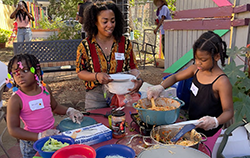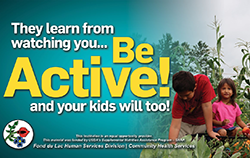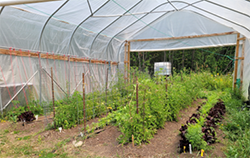SNAP-Education (SNAP-Ed)
SNAP-Education (SNAP-Ed) plays a critical role in helping SNAP recipients lead healthier lives on a limited budget. SNAP-Ed uses culturally centered programming to teach SNAP recipients how to make their SNAP dollars stretch, shop and cook healthy meals and stay physically healthy.
Helping Minnesotans lead healthier lives
Nutrition Education
Teaching how to shop for healthy foods, make healthy decisions on food choices and portions and demonstrating ways to prepare healthy meals on a budget.
Social Marketing
SNAP-Ed uses social marketing campaigns to communicate nutrition and health information to targeted audiences.
Policy, systems and environment change
Making changes at the policy, systems and environmental level for a broader impact in advancing health and achieving health equity.
Impacting a broad and diverse audience
We encourage our partners to develop programs that address their community's specific needs by creating culturally specific curricula and addressing root causes of poverty, such as unemployment, structural racism, educational gaps and homelessness.
2022 impact:
- 5,120 program participants
- 402 courses offered
- 694 community partners
- 272,107 people reached through all direct education programs, PSE initiatives and social marketing
Partnering with Tribal Nations across Minnesota
The department recognizes and honors Tribal sovereignty by partnering with each Tribal Nation and American Indian organization individually to implement SNAP-Ed programming. Partnering with each Tribal Nation and American Indian agency individually enables American Indian communities to identify and address specific gaps and strengths in their communities.
Tribal Nations partner with a diverse group of programs to reach audiences from every age group and education level. Programming focuses on culturally centered education about nutrition and physical activity. Some examples of Tribal Nation programming include:
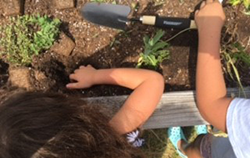
Planting, growing and harvesting community gardens to teach the importance of gardening skills and harvesting your own foods.
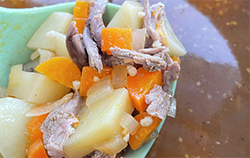
Working with families and individuals to expand food options, explore new recipes and promote healthy food and physical health.
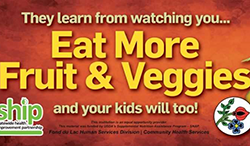
Social Marketing Campaigns focused on prioritizing Indigenous foods to build awareness and knowledge of traditional nutrition and physical activity practices such as harvesting, hunting, foraging, cultural teachings.
Implementing culturally specific programming
The Minnesota Department of Human Services develops an annual state plan to prioritize areas of focus. The department works with Tribal Nations and agencies across the state to implement culturally specific programming in their communities and encourages evidence-based, behaviorally focused nutrition education and obesity prevention interventions to help Minnesotans stretch food dollars and make healthier nutrition choices.
Community advocates can contact SNAP-Ed grantees to request classes, presentations, or resources to help improve the nutritional education in their community.
Bois Forte Band of Chippewa
Amber Harman
Bois Forte Health Services
amber.harman@boisforte-nsn.gov
Fond du Lac Band of Lake Superior Chippewa
Robin Johnson
Fond du Lac Public Health
robinjohnson@fdlrez.com
Grand Portage Band of Lake Superior Chippewa
Jennifer Sorenson
Grand Portage Health Services
jenns@grandportage.com
Leech Lake Band of Ojibwe
Lee Turney
Leech Lake Early Childhood Development
lee.turney@llojibwe.net
Lower Sioux Indian Community
Tricia Baune
Lower Sioux Indian Community Head Start and Early Head Start
tricia.baune@lowersioux.com
Mille Lacs Band of Ojibwe
Karen Pagnac
Aanjibimaadizing
karen.pagnac@millelacsband.com
U of M Extension
Mary Marczak
Department of Family, Health and Wellbeing
marcz001@umn.edu
Red Lake Nation
Sharon James
4-Directions Development
sjames@4directionsrl.org
Danielle Sutherland
White Earth Tribal Health
danielle.sutherland@whiteearth-nsn.gov
Department SNAP-Ed contact information
Office of Economic Opportunity
Veronica LaJoie
veronica.a.lajoie@state.mn.us
P.O. Box 64951
Saint Paul, Minnesota 55164-0951
Rachel Bowers
rachel.bowers@state.mn.us

